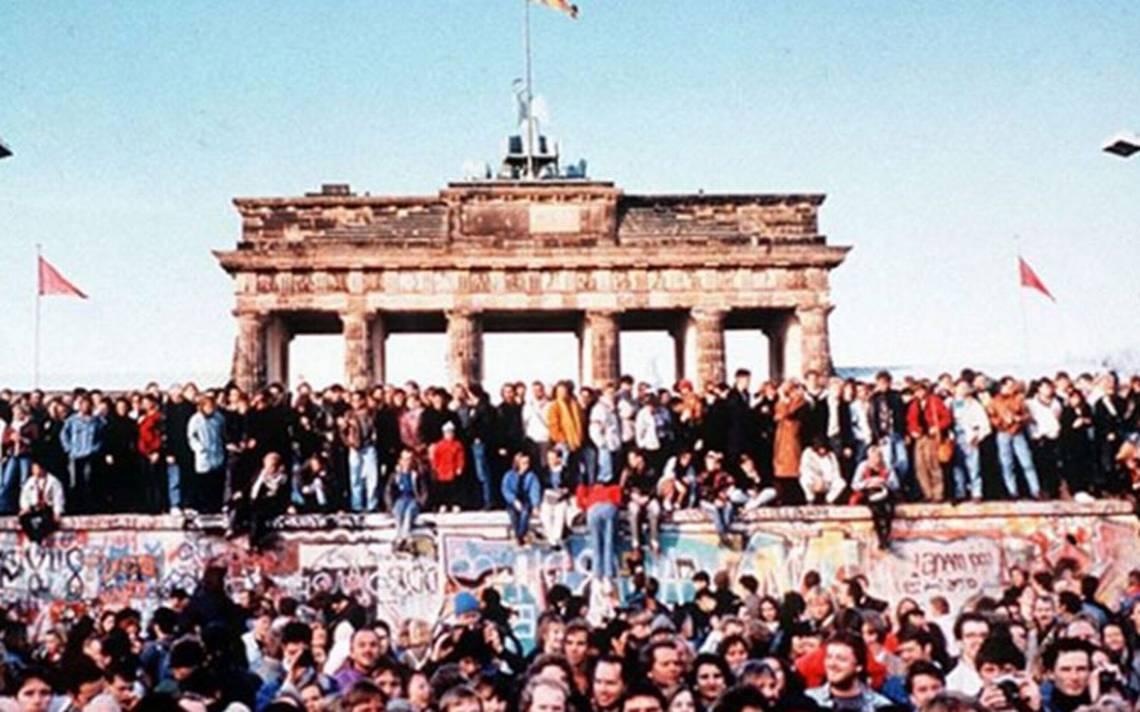32 years after the fall of the Berlin wall: a witness remembers what life was like on both sides
FRG students sit on top of the Berlin Wall in November 1989.
The 1950s were about rebuilding and recovery for Germany. During those years, largely due to political persecution and lack of freedom of expression, many people sought to flee the Soviet bloc to the West. This prolonged situation over time motivated the United Socialist Party of Germany (PSUA), with the express support of Moscow, to build a wall to prevent the mass flight of people, or what some authors call a "wall to contain capitalism". .
From the time the Berlin Wall was erected until its fall, 28 years elapsed. There were almost three decades in which various factors eroded its foundations. The Cold War, the unwanted effects of glasnost (liberalization of the political system) and perestroika (economic reform) in the USSR and the contacts of the Polish Pope John Paul II with Mikhail Gorbachev from 1988, coinciding with the millennium of the baptism of Prince Vladimir of Kiev, they brought down the wall.
On November 9, 1989, the spokesman for the central committee of the PSUA, Günter Schabowski, was giving a press conference when he received a statement. Read before the audience and television cameras, the document stated that East Germans could travel to West Germany. When asked when the measure would enter into force, the spokesman spoke a few concise words: "Immediately." Instantly thousands of people took to the streets of Berlin to celebrate the end of an era and tear down that Wall of Shame.
Born and raised under the oppression of communism
Holger Timmreck (62) was born on May 14, 1959 in Pirna, very close to Dresden. He grew up in a family that was highly critical of the communist regime in East Germany. He tried to flee and was captured and sentenced to prison. Today, 32 years after the fall of the Berlin Wall, he describes the details of his experiences and explains why the values of democracy must be defended.
When Timmreck was just a baby, his father was arrested by the GDR communist government for his fierce criticism of the model. Criticism of an inflexible model, from which many people wanted to escape in search of a better quality of life. “In Berlin there was a hole that connected the eastern part with the western part. Before 1961, 2.5 million people escaped to the FRG, there was a great brain drain to the FRG”, he specified from Lima in an interview with LMNeuquén.
Holger Timmreck.
By August 13, 1961, the moment in which the construction of the Wall began to stop that exodus, Timmreck was barely 2 years old. And by the time the Soviet tanks went to counteract the Prague Spring, 9. About those years, he remembers that hermeticism reigned in his family in the face of the pressing action of the communist government: “They were very strange times, the adults told us 'Children outside ' and they locked themselves up to talk about politics.
Contested between June 13 and July 7, 1974, the tenth edition of the Soccer World Cup – in which the two Germanys met for the only time in an official match and despite the fact that the GDR won in the knockout phase groups, the FRG was left with the cup - increased the desire of this fifteen-year-old to dedicate himself to sport. However, two years later he was denied the chance to pursue a career as a physical education teacher. “'Holger is not allowed to study at the university. Holger would not educate children in terms of socialism,' ”he reproduces.

Throughout compulsory military service, the Army sought to reinforce socialist ideology. In those years, from the top of the regime they wanted to capture in young people the idea that West Germany was not only an economic enemy, but also a military adversary. In parallel, a labor strike was unleashed in Poland led by Lech Walesa and this measure marked the first major union revolt against communism.
Escape attempt, years in prison and a TV career
Fed up with the life that communism forced on him, Timmreck decided he would attempt an escape. One New Year's Eve he shared his plan with Ziggy, a friend of his older brother, and Ziggy maintained that he would accompany him. Only Jürgen, a friend of theirs who lived in Düsseldorf, knew what they were up to and had express instructions to notify the western government in case the plan failed.
@kurikaeshii usually just leave it out of the freezer for a few hours... if your microwave doesn't have a defrost f… https://t.co/DFxKyiE0mi
— charon's goth rave playlist Tue Jul 20 17:45:55 +0000 2021
